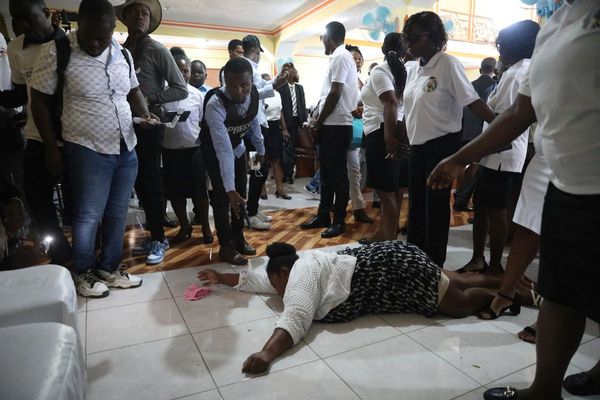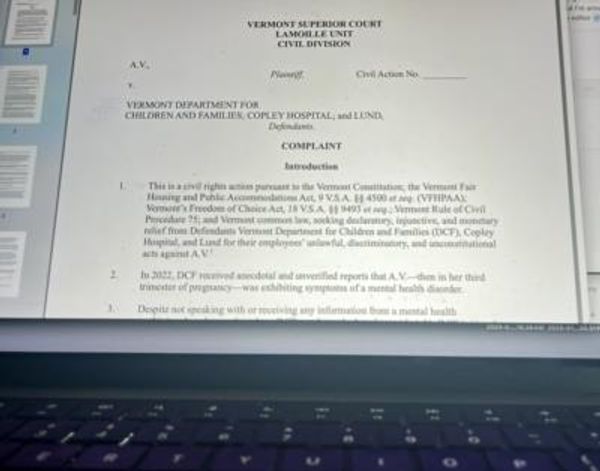
The United States said on Wednesday it would supply Ukraine with 31 of its most advanced battle tanks after Germany broke a taboo with a similar announcement, moves hailed by Kyiv as a potential turning point in its battle to repel Russia's invasion.
The U.S. decision to deliver M1 Abrams tanks helped break a diplomatic logjam with Germany over how to best to help Kyiv in its war with Russia, which hours earlier had condemned Berlin's decision to provide Leopard 2 tanks as a dangerous provocation.

Washington had been wary of the idea of deploying the difficult-to-maintain Abrams but had to change tack to persuade Germany to send its more easily operated Leopard 2 tanks - the workhorse of NATO armies across Europe - to Ukraine.
President Joe Biden announced the U.S. decision in remarks at the White House, saying the tanks were needed to help the Ukrainians "improve their ability to maneuver in open terrain."
Biden thanked Germany for its move and listed further military hardware that NATO allies and other European countries were supplying. "Germany has really stepped up," he said.

"The expectation on the part of Russia is we’re going to break up,” Biden said of the United States and European allies. “But we are fully, totally and thoroughly united.”
Kyiv has been calling for months for Western main battle tanks that would give its forces greater firepower, protection and mobility to break through long-static front lines and potentially reclaim occupied territory in the east and south.
Senior Biden administration officials said it would take some months for the Abrams to be delivered and described the move as providing for Ukraine's long-term defence.

"There is no offensive threat to Russia (itself)," Biden said. Moscow increasingly casts the war as a perilous face-off between Russia and the U.S.-led NATO alliance.
'PATH TO VICTORY'
The White House said Biden spoke on Wednesday with German Chancellor Olaf Scholz, French President Emmanuel Macron, and prime ministers Giorgia Meloni of Italy and Rishi Sunak of Britain on their nations' cooperation in support for Kyiv.

Germany, previously the West's holdout amid deep reluctance to export offensive weapons given its Nazi past, said it would send an initial company of 14 of its Leopard 2 tanks from its own stocks and also approve shipments by allied European states.
The eventual aim would be to supply Ukraine with two battalions of Leopards, typically comprising three or four companies each, the first to arrive within three or four months.
"Germany will always be at the forefront when it comes to supporting Ukraine," Scholz told the German parliament.
Scholz said later that Germany would send further military aid to Kyiv beyond the Leopards delivery, including for example air defence, heavy artillery and multiple rocket launchers.
Ukrainian President Volodymyr Zelenskiy hailed Washington's decision on Abrams tanks and thanked Scholz for the Leopards. He tweeted: "Today the free world is united as never before for a common goal", which he described as the liberation of Ukraine.
"The main thing is that this is only the beginning. We need hundreds of tanks," Andriy Yermak, head of Ukraine's presidential administration, said in a post on Telegram.
TABOO BROKEN
The German and U.S. moves definitively scrapped one of the last taboos in Western support for Ukraine: providing arms that have a mainly offensive rather than defensive purpose. The West has been reluctant to send heavy offensive weapons for fear of provoking nuclear power Russia.
Russia reacted with fury to Germany's decision, saying Berlin was abandoning its "historical responsibility to Russia" arising from Nazi crimes in World War Two when Hitler's forces invaded the Soviet Union.
"This extremely dangerous decision takes the conflict to a new level of confrontation," said Sergei Nechayev, Moscow's ambassador to Germany.
Pledges to Ukraine from other countries that field Leopards, which Germany made in the thousands and exported to allies in NATO, multiplied this week as big powers the United States and Germany appeared to patch up differences over their approach.
Finland and Norway announced they would send Leopards, as did Poland, which has already sought Berlin's approval.
Spain and the Netherlands said they were considering it. Britain has offered a company of 14 of its comparable Challenger tanks and France is considering sending its Leclercs.
Moscow says supplies of modern offensive weaponry to Ukraine will only postpone what it says will be its inevitable victory. Anatoly Antonov, Russia's ambassador in Washington, said deliveries of U.S. tanks would be "another blatant provocation".
WITHDRAWAL FROM SOLEDAR
Since Ukraine clawed back some territory in the summer and autumn of 2022, the war has become a bloody, deadlocked slog and Kyiv believes Western heavy weapons can restore its momentum.
Kyiv acknowledged on Wednesday its forces had withdrawn from Soledar, a small salt-mining town in the east that Russia had claimed to capture more than a week ago, its biggest gain for more than half a year.
The town is close to Bakhmut, a larger city that has been the focus of an intense Russian assault for weeks.
The Russian-installed governor of Ukraine's Donetsk region said units of Russia's Wagner contract militia were now moving forward inside Bakhmut, with fighting on the outskirts and in neighbourhoods recently held by Ukraine.
Reuters could not verify the situation there.
In the 11 months since it invaded, Russia has killed thousands of civilians, forced millions from their homes and reduced entire cities to rubble.
It says its "special military operation" was necessary to stem a security threat arising from Ukraine's ties to the West, which it now portrays as seeking to destroy it. Kyiv and its allies say Ukraine never menaced Russia and the invasion is a war of aggression to subdue a neighbour and seize land.
(Reporting by Reuters bureaus; writing by Peter Graff and Mark Heinrich; editing by Kevin Liffey, Timothy Heritage, William Maclean)







